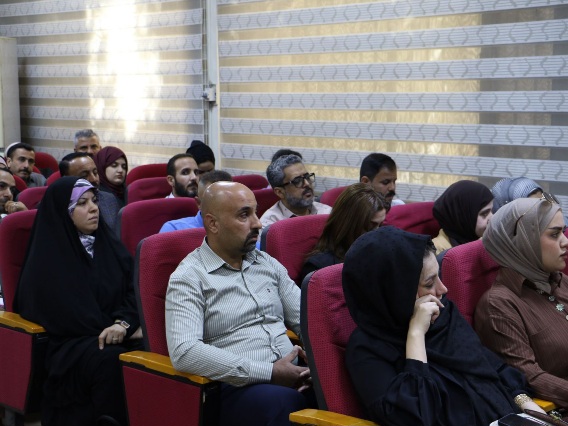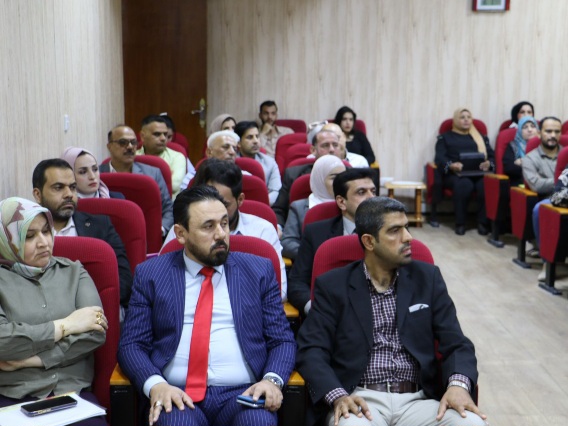The Graduate Studies Division at the College of Media, University of Baghdad, organized a scientific lecture titled “Drugs in Iraq: Reality and Solutions,” presented by the Assistant Dean for Scientific Affairs, Professor Dr. Shukriya Kawkaz Al-Siraj, and attended by graduate students.
The lecture aimed to shed light on the physical, mental, and psychological effects of drug use or addiction, as well as the methods of drug intake, including ingestion, inhalation, injection, or other means.
The lecture discussed the most common types of drugs in Iraq, such as methamphetamine, known as “crystal,” opium, referred to as “teriyak,” and hashish, in addition to drug tablets like Captagon.
It also covered several key aspects, including the medical and health-related effects of drug use on the body and mind, as well as the social and psychological consequences that may impact young people and hinder their academic and professional development. Additionally, solutions and effective strategies were discussed to raise awareness and prevent the spread of this harmful phenomenon among university students and youth.
This scientific activity aligns with the United Nations’ Sustainable Development Goal 3, which aims to ensure healthy lives and promote well-being for all, by raising awareness among young people about the importance of maintaining their health and avoiding the risks associated with drug use.













